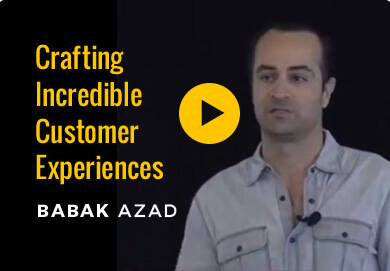
A good friend who recently started a business is getting preferential treatment from her vendors. They have given her low minimum order quantities and generous payment terms on her orders. Both are typically reserved for customers with significant history and volume.
Frankly, it’s almost not fair that she gets these terms while others don’t.
To be clear, there is nothing happening that is remotely illegal. At the end of the day, these types of decisions a vendor makes are business decisions.
But there’s more to the story…
My friend has been working in the same industry as her startup for the past 10 years. Her business partner’s family business has even more years of experience in the industry.
They both have history. They both have relationships. And good ones at that.
And because they are using the same vendors as her partner’s family business, the startup is essentially piggy-backing on the trust built over time.
These two entrepreneurs knew this going in. And frankly, that’s a big part of why they decided to take the leap.
They knew that they had to manage their cash carefully. These two also knew that they had an advantage many others don’t. They didn’t have to buy as much as everyone else (less upfront risk), and they didn’t have to pay as quickly for what they did purchase (favorable payment terms).
But I’ll be honest.
I was kind of annoyed when I first heard this.
Very quickly, that annoyance turned to admiration and respect.
“Smoke ‘em if you’ve got ‘em.” Especially when not everyone has ‘em, right?
The reality is that anyone starting a new business should try to leverage their own unfair advantages as much as possible.
Some people know how to code.
Some know how to build websites.
Some have a ton of relationships.
Some are really good at sales.
Some are just really smart.
And some know they can outwork everyone else in their industry.
When you marry those unfair advantages with passion and competence, that’s when risk goes down and the chances of success dramatically increase.
In fact, risk management is a skill most entrepreneurs don’t get enough credit for. Most people view entrepreneurs as risk-takers. And certainly most entrepreneurs are more tolerant of risk than the average individual.
But very few people talk about how well entrepreneurs manage that risk.
Maybe they start small and build slowly.
Maybe their model has multiple ways of evolving such that if one path doesn’t work, there are other ways to go.
Maybe they start a business where they have a lot of history and relationships. Which in turn leads to decreasing the financial constraints on their business.
And then for some, it’s not maybe. It’s real. They manage their risk by knowing they have what many people would term an unfair advantage.
When in reality it’s knowing what you got and being smart about using it.
This isn’t to say that people can’t and haven’t had success in entirely new industries or roles.
But if you could dramatically reduce your risk and increase your chances of success, why wouldn’t you?
So what’s your unfair advantage and are you leveraging it to its max?
Please leave a comment below because I’d like to hear what you think.
You can also follow me on social media or connect with me directly by clicking the links to the left.






Leave a Reply
You must be logged in to post a comment.